A FOUNDATION OF CONVICTION

WE DON'T OWN EVERYTHING WE OWN
The Werner Erkes Foundation in Düsseldorf is passionate and committed to education and development in Africa. Our values are the foundation of our work and guide us in all our projects. Tolerance is of central importance to us. We believe that treating each other with respect and accepting different cultures and perspectives form the basis for a harmonious society. Education for all is our main concern. We are convinced that everyone, regardless of gender, origin or social status, has the right to a high-quality education. By building schools and educational projects, we create opportunities for children and young people to fulfil their potential. A particular focus is on supporting girls and young women. We are actively committed to ensuring that girls have the same educational opportunities as boys. Education is the key to self-determination and to improving the living conditions of women and their families.
The fulfilment of the UN 2030 Agenda is another important aspect of our work. We are guided by the global Sustainable Development Goals and contribute to combating poverty, promoting education and achieving gender equality. We are also committed to preventing corruption. Transparency and integrity are essential for us to gain and maintain the trust of the community and our partners. A central goal of our foundation is to prevent migration from Africa. By creating educational and development opportunities locally, we want to help people find and retain prospects in their home countries.
Partnership with charitable organisations in Germany and Africa on an equal footing is important to us. We believe in sharing knowledge and resources in order to develop sustainable solutions together. We make our foundation assets available to fund projects that have a positive impact on communities. In doing so, we ensure that our funds are used effectively and responsibly. Last but not least, respect for everyone and everything at all levels is our top priority. We respect the people we work with, the cultures in which we operate and the environment that surrounds us.
The Werner Erkes Foundation stands for a future in which education, tolerance and respect form the basis for a better life in Africa. Together with our partners, we are committed to putting these values into practice.

“Perhaps world peace is a utopian ideal. It is also likely that equal opportunities for all people are an unfulfillable wish. But every step towards this goal makes the world a little safer and a little more worth living in.”
Werner Erkes, Chairman and founder
The benefactor, Werner Erkes, can look back on a successful career as a designer and entrepreneur. He is aware that this was not possible solely on the basis of his personal talents or achievements. The decisive factors were, rather, in addition to luck, which of course always plays a role, the opportunities afforded to him during his childhood and youth in the form of a good education and unrestricted access to an excellent education system.
All of this made it possible for him to develop from rather modest, lower-middle-class circumstances into a successful businessman. The realization that the success of the privileged always comes at the expense of the disadvantaged to some extent also led to the idea of the foundation.

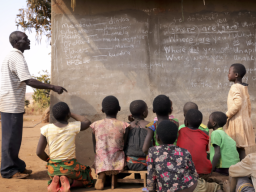

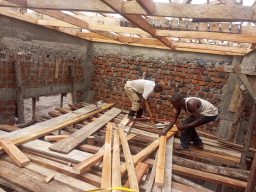
THE LONG ROAD TO AN INDEPENDENT FUTURE
The imbalance of opportunities for an economically secure life is particularly evident in times of globalization. The ever-widening gap between rich and poor increases the potential for conflict in the social hot spots of our society. The industrialization of the Western world and the unstoppable globalization are contributing to the catastrophic conditions in the disadvantaged regions of the world.
“EDUCATION IS THE ONLY SOLUTION.
EVERYTHING BEGINS WITH EDUCATION.”
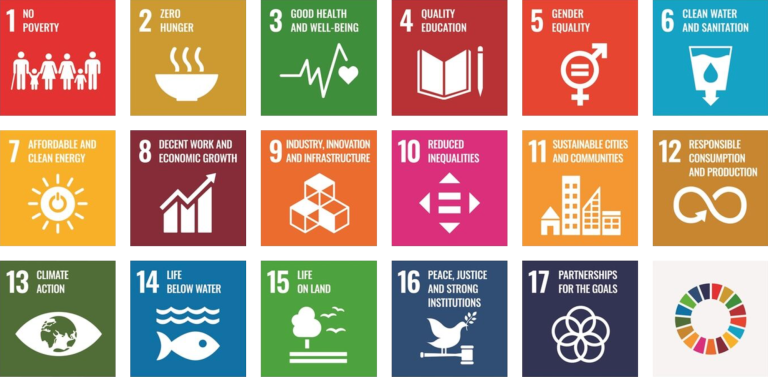
With the 2030 Agenda adopted in 2015, the international community under the umbrella of the United Nations has committed itself to 17 global goals for a better future.
The guiding principle of the 2030 Agenda is to enable people everywhere to live in dignity, while sustainably preserving the natural foundations of life. This encompasses economic, ecological and social aspects. The 2030 Agenda emphasizes the shared responsibility of all actors: politics, business, science, civil society – and every individual.
The Werner Erkes Foundation has set itself the goal of promoting the sustainability goal of HIGH-QUALITY EDUCATION with its initiative. While most children and young people in Germany go to school every week, around one in six children worldwide cannot attend school. For the children concerned, this means that they have little knowledge and often learn neither reading nor writing nor arithmetic. As a result, they can only do a low-skilled job later on and often earn very little money.
Children living in poverty in particular are unable to attend school because they lack the money for tuition and school supplies. These children start working early to support their family. Sometimes there is no school nearby at all.
This makes it difficult for them to escape poverty. They lack important qualifications and skills. The low level of education of a population is not only a problem for the people concerned, but also for the country as a whole. If a country does not have educated and qualified specialists, it can hardly develop further and grow economically in the long term on its own.
Even if many children are able to go to school, more than half of them still cannot read and write properly. This is often because the schools and teachers are poorly equipped. While schools in Germany are increasingly using computers and technology, almost half of the schools south of the Sahara have no access to drinking water, no electricity, no computers and no internet. In addition, there is a lack of qualified teachers to effectively impart knowledge to the students.

“So let us take up the fight against illiteracy, poverty and terror and to do that, we need to pick up our books and our pens. They are our most effective weapons. One child, one teacher, one pen and one book can change the world. Education is the only solution. Education is the beginning of everything.”
Malala Yousafzai, children's rights activist and Nobel Peace Prize winner


THE BOARD

Werner Erkes
Chairman of the Board and Founder
Werner Erkes is a graduate graphic designer and managing partner of TASKOM Werbeagentur GmbH & Co. KG, Düsseldorf. In the course of his long professional career, he developed the desire to give something back from the good fortune and success he had experienced to those who, unlike himself, did not have access to an excellent education system.
In 2013, the idea was finally realized to promote and develop educational opportunities, for example in the Global South, by founding the Werner Erkes Foundation.

Manfred Belle
Vice Chairman
Manfred Belle is a political scientist and is currently responsible for advising associations and foundations at the Eine Welt Netz NRW, among other things. In the 1990s, he coordinated municipalities from the Münsterland region in supporting climate projects in Ecuador and headed an association that set up school projects in Zimbabwe. Project visits also took him to Ghana, Uganda, Tanzania and Rwanda. Since 2018, he has been deputy chairman of the North Rhine-Westphalia Foundation for the Environment and Development. His engagement consultancy brought him into contact with various philanthropists and donors, whose commitment he supports with respect and joy.
With his voluntary work on the board of the Werner Erkes Foundation, he wants to help achieve the fourth of the 17 Sustainable Development Goals of the United Nations: “Ensure inclusive and equitable quality education and promote lifelong learning opportunities for all.”

Katrin Schillings
Member of the Board
Katrin Schillings is a tax consultant and partner at the tax consultancy Schillings & Reichhardt PartGmbB, Steuerberater, Neuss.
Through her voluntary work in various sports and social clubs in the region, she has extensive experience and professional expertise in association and foundation tax law.
She has been involved in various associations in board work for years and would like to support the foundation with her knowledge and experience.
Her goal is to provide children and young people with a good education, no matter where they live in the world.

THE MANAGEMENT

Werner Erkes
Managing Director
Werner Erkes is a graduate graphic designer and managing partner of TASKOM Werbeagentur GmbH & Co. KG, Düsseldorf. In the course of his long professional career, he developed the desire to give something back from the good fortune and success he had experienced to those who, unlike himself, did not have access to an excellent education system.
In 2013, the idea was finally realized to promote and develop educational opportunities, for example in the Global South, by founding the Werner Erkes Foundation.
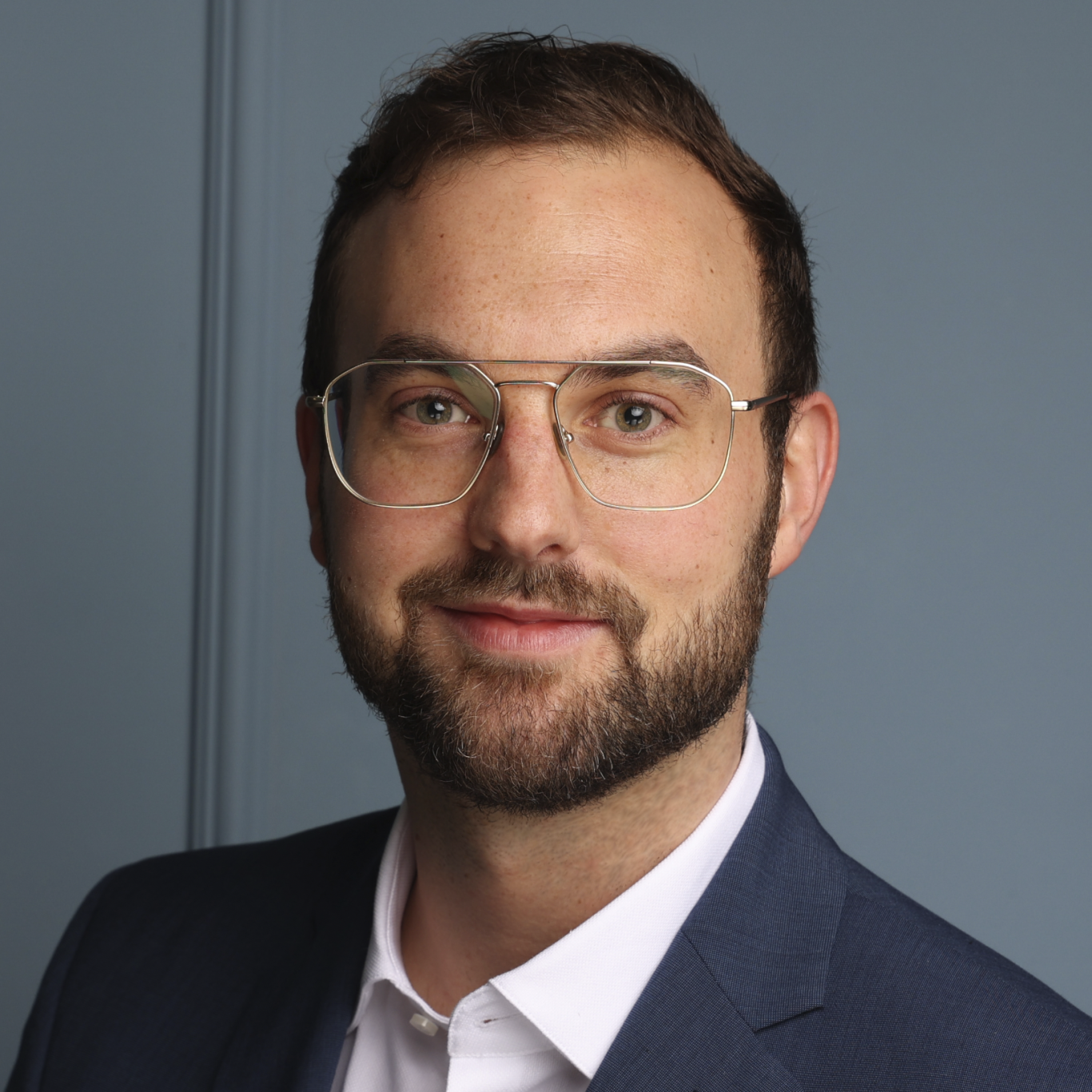
Peter von Heyking
Deputy Managing Director
Peter von Heyking, an industrial engineer (B.Sc.) with extensive professional experience in upper management, made a conscious decision to switch from the private sector to the non-profit sector. Driven by the desire to make a meaningful contribution, he now brings his knowledge and skills to the foundation. He has continuously developed his skills through renowned institutions such as Harvard University, from leadership programs to intercultural competencies. As an active member of the management team, he is involved in all strategic and operational areas of the foundation worldwide and is fully committed to its long-term success and positive social impact.
THE MANAGEMENT IN AFRICA


Dr. Joseph Wasswa
Dr. Joseph Wasswa has been relieved of his duties as Managing Director of the Werner Erkes Foundation East Africa since January 14, 2025.


Volkan Sazli
Managing Director of WEF Southern Africa
Volkan Sazli has been active in Namibia since 2014. For his commitment, he received a nomination from the BMZ as a “young professional in development cooperation to achieve the 17 sustainability goals”.
His motto: We learn from defeats and failures and feel motivated to try even harder because we have the basic trust that everything will be fine. His life's goal is free, unrestricted access to education for all children and young people in Namibia. Consequently, he founded the non-profit organization Tangeni Shilongo Namibia in Swakopmund with like-minded people.
Since April 2024, he has also been in charge of the Werner Erkes Foundation Southwest Africa.


Theresa Rhode
Project Manager of WEF Southern Africa
Theresa Rhode has been working in Namibia as a qualified social worker since 2015. Both her bachelor's and master's theses in “Management in Nonprofit Organizations” dealt with the challenges and opportunities of the nonprofit sector and civil society in Namibia. Since April 2024, she has been supporting the Werner Erkes Foundation Southwest Africa and coordinating existing projects on the ground.


Dr. Djiby Diouf
Managing Director der WEF West Afrika
Dr. Djiby Diouf has successfully completed his studies in sociology and educational science with a doctorate in Münster. Through his teaching activities at the Institute for Sociology and his employment in the context of international voluntary service in Münster, he is very familiar with the cooperation and networking with partner organizations in Germany and also in West African countries such as Senegal, Togo and Ghana. His doctoral thesis from 2009 deals with the problem of sustainable development in Senegal in the context of political guidelines and sociological obstacles, using the example of Kaolack.
Dr. Djiby Diouf has been the lead developer of the newly established Werner Erkes Foundation West Africa since August 2024.
Support us!
Together we can achieve great things
Help us to realize our vision of a better future. Support the Werner Erkes Foundation and become part of our mission to give hope and opportunities.
Gemeinnützige Stiftung für Erziehung, Bildung und Kultur
Postanschrift: Werner Erkes Stiftung, Marc-Chagall-Straße 146, 40477 Düsseldorf, Germany - Werner Erkes, E-Mail: erkes@erkes.de
Büroadresse: Toulouser Allee 4, 40211 Düsseldorf
Werner Erkes Foundation Southern Africa - Volkan Sazli, E-Mail: sazli@erkes.de
Werner Erkes Foundation East Africa - Peter von Heyking, E-Mail: vonheyking@erkes.de
Werner Erkes Foundation West Africa - Dr. Djiby Diouf: E-Mail: diouf@erkes.de
Wir benötigen Ihre Zustimmung zum Laden der Übersetzungen
Wir nutzen einen Drittanbieter-Service, um den Inhalt der Website zu übersetzen, der möglicherweise Daten über Ihre Aktivitäten sammelt. Bitte überprüfen Sie die Details in der Datenschutzerklärung und akzeptieren Sie den Dienst, um die Übersetzungen zu sehen.
